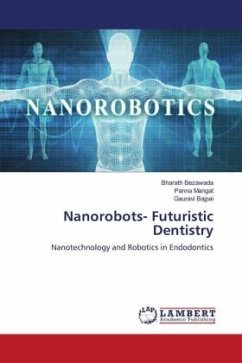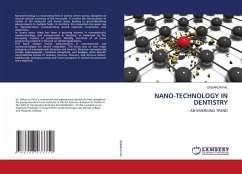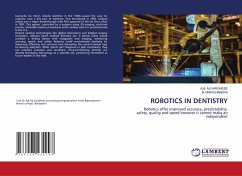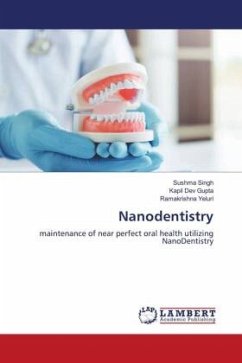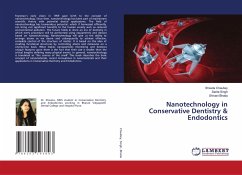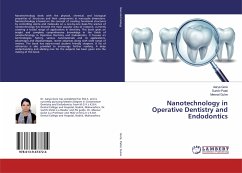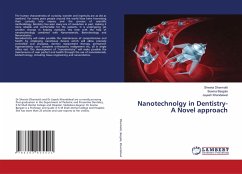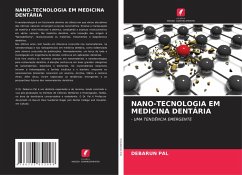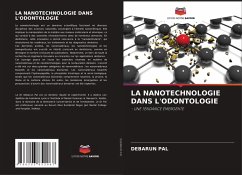
Nanotechnology and Nanorobotics in Dentistry
Versandkostenfrei!
Versandfertig in 6-10 Tagen
53,99 €
inkl. MwSt.

PAYBACK Punkte
27 °P sammeln!
Nanotechnology has revolutionized endodontics by leveraging nanosized particles with superior properties, enhancing treatment quality through precise manipulation of dental tissues at the nanoscale. This innovation has enabled the design of materials and instruments with ultrafine architecture, significantly improving clinical dentistry techniques.Robotics holds promise for dentistry, offering enhanced accuracy, predictability, safety, and treatment speed. Despite its potential benefits, widespread adoption has been slow, influenced by technological acceptance and integration challenges. The f...
Nanotechnology has revolutionized endodontics by leveraging nanosized particles with superior properties, enhancing treatment quality through precise manipulation of dental tissues at the nanoscale. This innovation has enabled the design of materials and instruments with ultrafine architecture, significantly improving clinical dentistry techniques.Robotics holds promise for dentistry, offering enhanced accuracy, predictability, safety, and treatment speed. Despite its potential benefits, widespread adoption has been slow, influenced by technological acceptance and integration challenges. The future of dentistry depends on the successful incorporation of emerging technologies into clinical practice and education, ensuring advancements in patient care are not hindered by initial cost concerns. Embracing these innovations is critical for advancing dental health and treatment outcomes beyond conventional methods.





